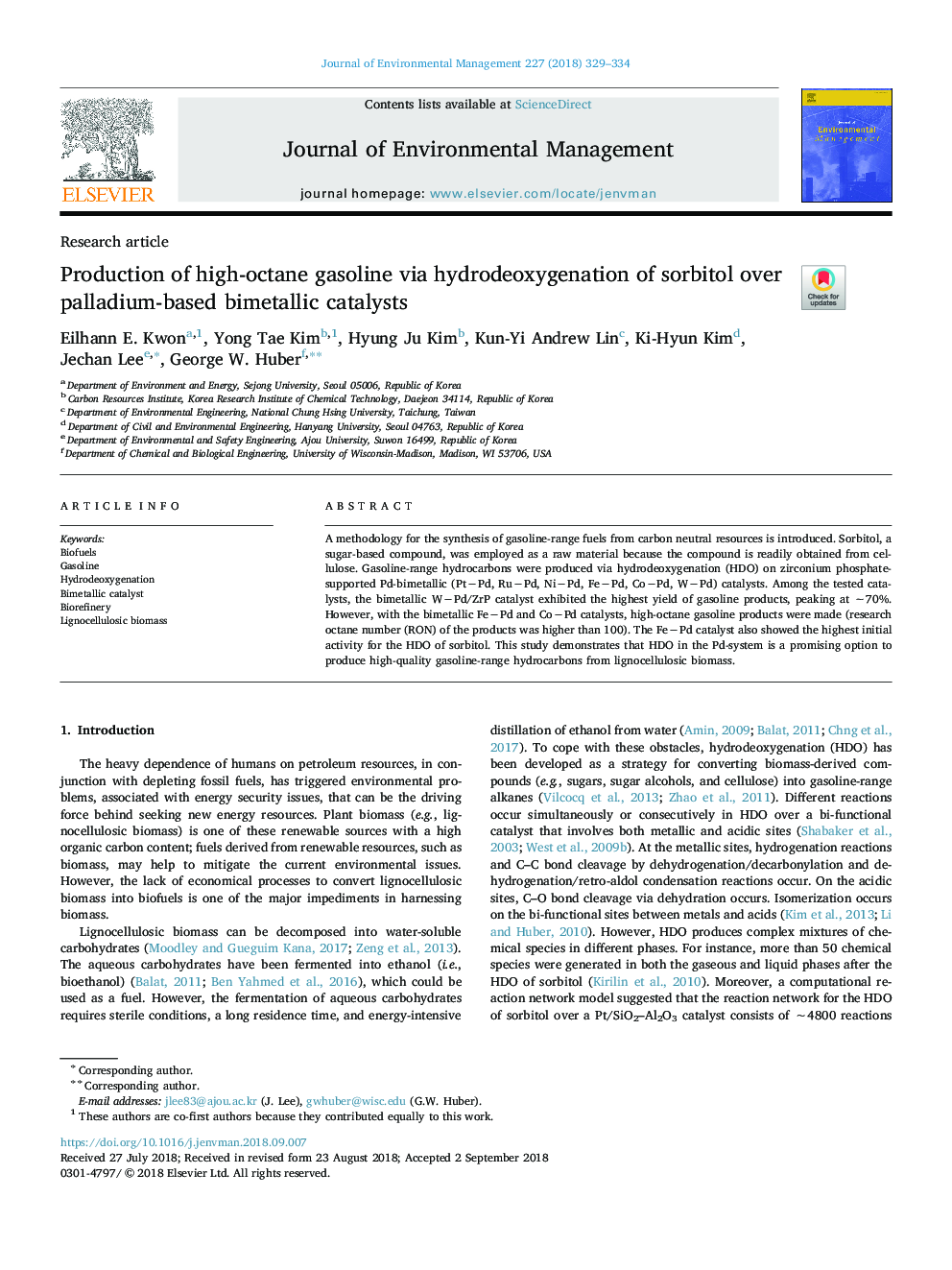| Article ID | Journal | Published Year | Pages | File Type |
|---|---|---|---|---|
| 10140638 | Journal of Environmental Management | 2018 | 6 Pages |
Abstract
A methodology for the synthesis of gasoline-range fuels from carbon neutral resources is introduced. Sorbitol, a sugar-based compound, was employed as a raw material because the compound is readily obtained from cellulose. Gasoline-range hydrocarbons were produced via hydrodeoxygenation (HDO) on zirconium phosphate-supported Pd-bimetallic (PtâPd, RuâPd, NiâPd, FeâPd, CoâPd, WâPd) catalysts. Among the tested catalysts, the bimetallic WâPd/ZrP catalyst exhibited the highest yield of gasoline products, peaking at â¼70%. However, with the bimetallic FeâPd and CoâPd catalysts, high-octane gasoline products were made (research octane number (RON) of the products was higher than 100). The FeâPd catalyst also showed the highest initial activity for the HDO of sorbitol. This study demonstrates that HDO in the Pd-system is a promising option to produce high-quality gasoline-range hydrocarbons from lignocellulosic biomass.
Related Topics
Physical Sciences and Engineering
Energy
Renewable Energy, Sustainability and the Environment
Authors
Eilhann E. Kwon, Yong Tae Kim, Hyung Ju Kim, Kun-Yi Andrew Lin, Ki-Hyun Kim, Jechan Lee, George W. Huber,
